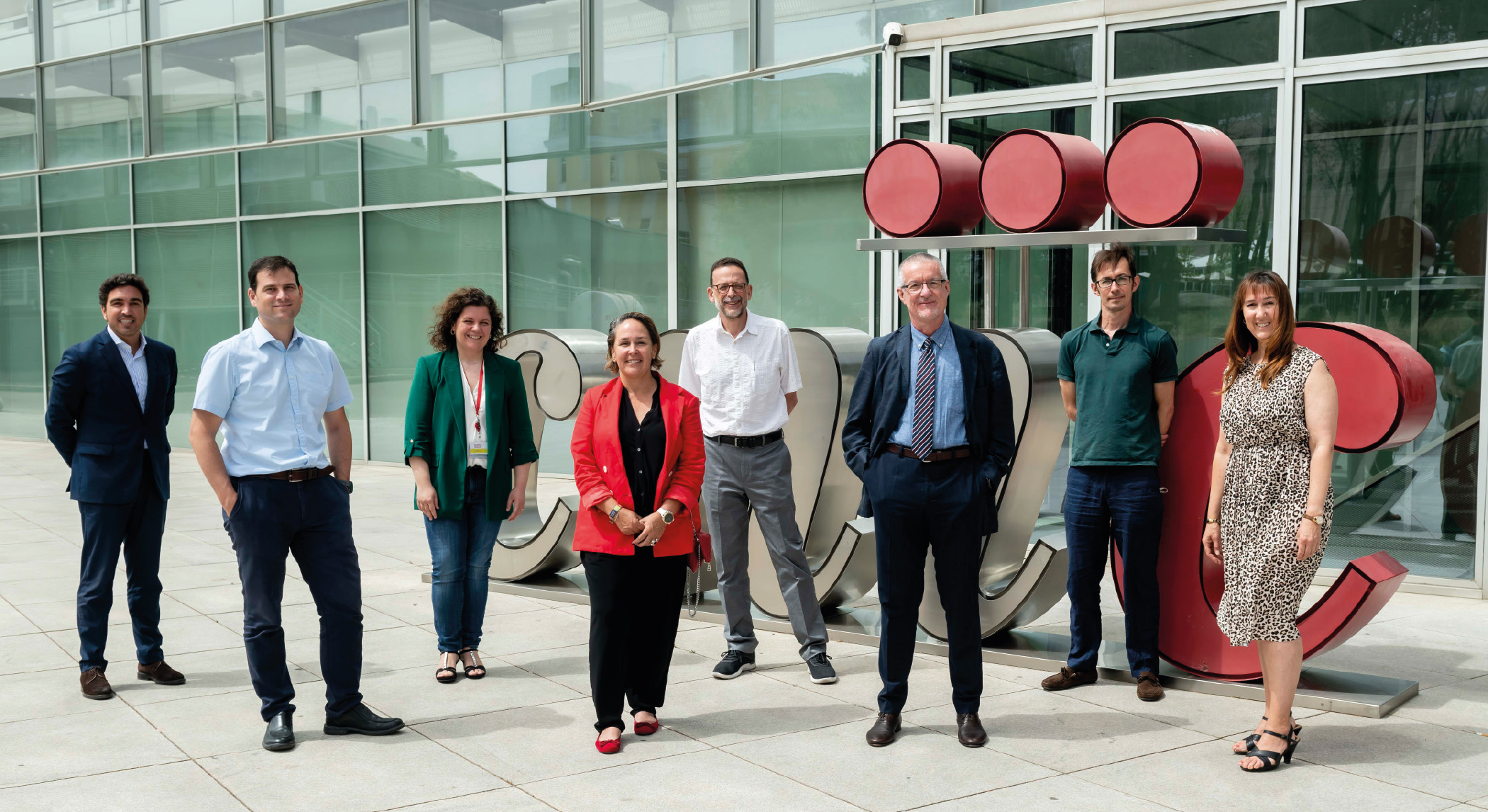Visiting Researchers at the CNIC
Since 2013, the Jesús Serra Foundation and the CNIC, have participated in a program to attract prestigious researchers to the CNIC

The international prestige that science has accomplished in Spain, together with the quality of its studies and initiatives and the results obtained, allows it to continue attracting the attention of important researchers, who visit the CNIC from the most diverse parts of the world.
Convinced of the importance of fostering interaction in the field of research to contribute to the advancement of science, the Jesús Serra Foundation collaborates with the CNIC - where many prestigious researchers come to visit, within the framework of the Jesús Serra Foundation Visiting Researchers program.
This program consists of bringing scientists of international prestige to carry out stays in Spanish research centers, with the objective that they can, on the one hand, deepen the scientific relationship of the host research group with that of the center of origin of the researcher, and, on the other, promote new lines of action based on new scientific interests.
In 2013, the Jesús Serra Foundation and the CNIC signed a collaboration agreement in the Visiting Researchers program. With this, the intention is to attract the presence of researchers of international prestige who are willing to stay between two to six months, and work on the projects the CNIC has up and running.
The Visiting Researchers program, which began its journey in 2008, is widely recognized in the area of scientific research, thanks to the work carried out by the Foundation and the support it offers to institutions and organizations to advance on projects that they work on. “We are aware of the current situation and we believe that thanks to programs such as Visiting Researchers we can ensure that many research projects can continue and do not have to be paralyzed due to lack of resources,” says Federico Halpern, President of the Jesús Serra Foundation.
After the standstill caused by the COVID-19 pandemic, in 2022 the Jesús Serra Foundation and the CNIC resumed their collaboration and introduced the scientists participating in this program.
On this occasion, the conference included the intervention of the three visiting researchers, Guillermo Oliver, Benedetta Izzi and Raffaele Strippoli. Also participating, on behalf of the CNIC, were the scientific directors BorjaIbáñez and Vicente Andrés and the managing director Alberto Sanz. And, participating on behalf of the Jesús Serra Foundation were Laura Halpern, vice president, Ignacio Gallardo-Bravo, general director, and Susana Codina, deputy director.
Until now, six scientists have already participated in this program. In addition to Guillermo Oliver, the researchers are Benedetta Izzi and Raffaele Strippoli, Sandeep V. Pandit, Stuart Pocock and Gabriel Núñez.
“At the CNIC we like to attract talent in the search for excellence in cardiovascular research. For this reason, the Visiting Researchers program of the Jesús Serra Foundation is especially attractive for the philosophy of the center that I manage. I am sure that great things will come out of this collaboration”, underlines the General Director of the CNIC, Dr. Valentín Fuster.
SANDEEP PANDIT
Dr. Sandeep Pandit is an expert on arrhythmias from the University of Michigan (USA). Dr. Pandit was the first protagonist of the Visiting Researchers program. During his three-month stay at the CNIC, Dr. Pandit worked closely with Dr. David Filgueiras, head of the group of Advanced Development on Mechanisms and Therapies of Arrhythmias. There are two projects in which Dr. Pandit closely collaborated in: improving signal processing methods, as a way to improve the understanding of arrhythmias, and testing new drugs against the disease, especially in experimental models.
STUART POCOCK
Dr. Stuart Pocock, director of the Department of Medical Statistics at the London School of Medicine. Together with Dr. Borja Ibáñez, they directed the collaboration project “Statistics on CNIC research projects.”
The collaboration focused on various clinical trials, observational studies, etc. He is a tutor for the interns of the CNIC Cardiojoven Training Program (in collaboration with the SEC- Spanish Society of Cardiology). The intern in 2019 was Dr. Xavier Rosselló.
GABRIEL NÚÑEZ
He is a professor in the Department of Pathology at the University of Michigan (USA) and is recognized as one of the leading experts in gastrointestinal and systemic inflammation, host-microbe interactions, and mucosal immunology. Together with Dr. Andrés Hidalgo he worked on the study of the role of neutrophils in bacterial infection and tissue damage, and with Dr. José Antonio Enríquez he carried out studies with genetic models of the role of mitochondrial metabolism in the antimicrobial function of neutrophils.
RAFFAELE STRIPPOLI
Dr. Raffaele Strippoli is an expert on molecular mechanisms of fibrosis, from the University of Rome Sapienza (Italy). Dr. Strippoli did his postdoctoral studies at the CNIC and has been actively collaborating with the CNIC for many years. During his stay at the CNIC as a researcher in the Visiting Researchers program, Dr. Strippoli is working closely with Dr. Miguel Ángel del Pozo, main researcher of the laboratory of Mechanoadaptation and Caveolae Biology. Specifically, Dr. Strippoli is collaborating in a research project that analyzes the role of a plasma membrane protein, caveolin, in determining changes in the plasticity of endothelial cells exposed to mechanical stimuli such as alterations in vascular flow, with implications in the genesis and progression of atherosclerosis.
BENEDETTA IZZI
Dr. Benedetta Izzi, from IRCCS Neuromed (Italy), is an expert on genomics and its relationship with environmental and lifestyle factors involved in cardiovascular disease. During her six-month stay at the CNIC, Dr. Izzi worked with Dr. José Javier Fuster’s team in the Hematovascular Physiopathology laboratory.
The projects in which she collaborated most actively covered two areas: first, the characterization of mutations associated with clonal hematopoiesis and their interaction with epigenetics; secondly, the validation at the CNIC of new markers of subclinical inflammation in humans, previously developed at IRCCS Neuromed.

















